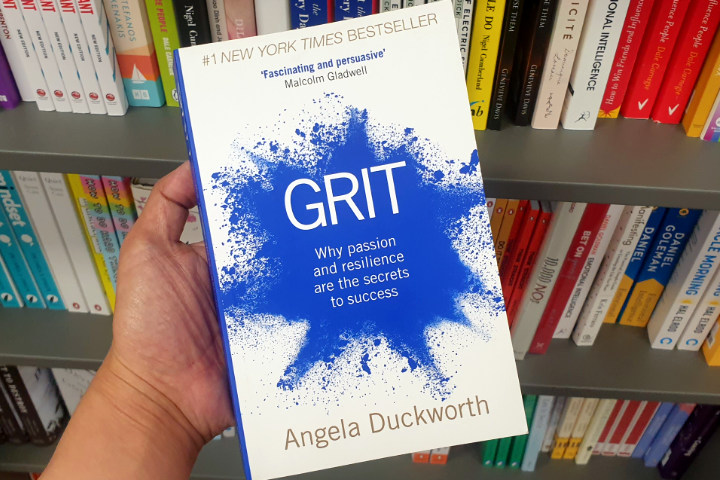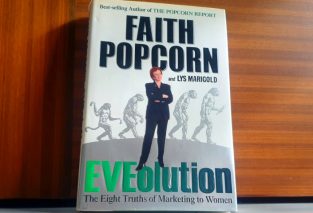Success comes from passion and perseverance. Talent alone isn’t enough. Sustained effort and determination drive achievement. Embrace challenges and resilience to reach long-term goals and unlock true potential.

In Grit, Angela Duckworth delves into the often elusive quality that determines success more consistently than raw talent or intelligence: GRIT.
With gripping research and a clear, captivating writing style, she constructs an argument that perseverance and passion for long-term goals are far more crucial in the journey to success than many of us are led to believe.
The book is a synthesis of years of research, deeply rooted in psychology, neuroscience, and personal stories. Making it both enlightening and motivational.
But what makes Grit so powerful is its universality.
It’s not just a call to people who want to succeed in business, sports, or academics, but a message for anyone who wants to push through the tough times and keep going when the world tells you to quit.
It begins with an introduction to the concept of grit not as a single trait, but as a blend of passion and perseverance.
The author challenges the myth that talent is the be-all and end-all of achievement.
How many times have we heard someone referred to as a “natural”? How often have we dismissed our own dreams because we felt we didn’t have the innate ability to make them come true?
These misconceptions are dismantled and proceed to argue that the real key to success is not how smart or talented we are, but how much we are willing to persist in the face of obstacles.
The book is an inspiring reminder that the path to mastery in any other field is long and difficult. But it’s not the speed or the ease with which we travel that matters. It’s the fact that we continue at all.
It teaches us that the persistence to go the distance is what ultimately sets apart the successful from the ones who simply give up along the way.
The beauty of the arguments found in the book lies in the thorough exploration of what grit really means.
With multi-faceted approach to defining the concept. Focusing not just on the idea of “grinding it out” through sheer willpower. But also on the importance of passion. What the author calls “sustained interest”.
It’s not enough to just work hard. You have to care deeply about what you’re doing.
This combination of passion, resilience and perseverance is where true success lies.
Grit is contrast with other factors, like talent, intelligence, and luck. Characteristics which are often assumed to be the primary determinants of success.
The narrative is a journey into understanding what it takes to achieve long-term goals, akin to cultivating a garden where each seed of effort requires nourishment through dedication and time.
Through anecdotal stories of successful individuals, ranging from extraordinary students at West Point Military Academy to National Spelling Bee champions, it demonstrates that grit outperforms talent. And often results in higher achievement.
Perseverance and a deep-seated passion for one’s pursuit are the true drivers of achievement.
There are also interesting investigations into the science behind the trait.
Research shows how perseverance affects the brain. And how people with grit actually have a different relationship with failure than those without it.
Rather than seeing failure as a sign to quit, gritty people view it as part of the process. A temporary setback on the way to success.
Our ability to recover from failure is as important. If not more so than our ability to avoid it altogether.
Grit is not a static trait that stays static. But one that can be developed over time. Evidence indicates that grit can be nurtured through practice, habits, and an environment that encourages persistence.
A liberating notion suggesting that individuals have the power to cultivate their resilience through practice and reflection. It’s as if we are handed a chisel, encouraging us to sculpt our potential with patience and resolve.
The critical distinction with grit is that it isn’t about avoiding failure. It’s more about continuing even after it.
A moment that made me chuckle was when the author wittily suggests that developing grit is like making a perfect soufflé. It takes patience, persistence, and just the right amount of hot air.
Grit also applies to different life domains. It’s not just present it as a one-size-fits-all solution to success.
For example, someone passionate about their work or art doesn’t just keep at it because they “have to,” but because they’re deeply invested in the process and outcome.
This distinction is important because it frames grit in terms of personal meaning and purpose, not merely as a means to an end.
The pursuit of mastery is rooted in a long-term commitment to growth. Not just a desire for external validation. Developing this grit is not about sprinting toward an arbitrary finish line but about committing to something worthwhile over the long haul.
Shortcomings
While considerable time is spent discussing the role of grit in individual achievement, it doesn’t always fully address the challenges faced by people in environments where systemic or external factors significantly limit their ability to develop or sustain grit.
For instance, not everyone has the same access to the resources, opportunities, or emotional support needed to nurture their passion and perseverance.
Socioeconomic status, access to resources, and support systems play crucial roles in shaping one’s capacity for grit.
Even though it is briefly acknowledged that circumstances matter, it doesn’t fully delve into how individuals facing such obstacles might cultivate grit in the face of adversity. So in a way, grit can often be a privilege.
In this sense, a broader discussion on how grit plays out in contexts where external challenges are insurmountable would make the argument more nuanced and accessible to a wider audience.
The book’s overly optimistic portrayal of grit as the ultimate key to success doesn’t fully acknowledge how toxic “grit culture” can sometimes become in certain environments.
There is a risk of idealizing grit to the point where people might feel guilty for not constantly pushing forward, even when it’s not healthy for them to do so.
There’s a fine line between perseverance and burnout, and this book, in some places, seems to blur that line.
Grit should not become an excuse to overwork, sacrifice well-being, or ignore the need for rest.
A more balanced perspective on when it is appropriate to take a break or even to step away from something could add depth and realism to Duckworth’s argument.
Some readers might also find the book’s focus on high achievers somewhat narrow.
While stories of exceptional individuals are inspiring, they may not fully capture the experiences of everyday people striving to achieve their personal goals. Broadening the scope to include diverse narratives could enrich the book’s appeal and applicability.
Hardwork can only take you so far. You need a certain amount of talent or specific skills to become a superstar.
Biggest Takeaway
Success doesn’t come from talent or sheer intelligence. It’s a product of the willingness to persevere, especially when faced with obstacles.
This principle can be applied not only to our professional pursuits but also to our personal lives.
The modern world often glorifies instant success. This is a refreshing reminder that long-term fulfillment and achievement come from enduring the process,. Not from avoiding the struggle.
The formula isn’t about looking for shortcuts. It’s about putting in the time, effort, and heart into what you care about.
Effort counts twice. Once through the development of skills and again through the application of those skills toward meaningful goals. This principle underscores the book’s core belief in the transformative power of perseverance.
For anyone struggling with the idea of perseverance, this book will give you the “grit” to keep going. Especially when the only thing tougher than a stubborn grain of sand is a person who refuses to give up!
I’d say that this is a book that challenges conventional thinking about success.
A timely reminder that talent alone isn’t enough. And that true achievement is rooted in a combination of passion, perseverance, and the willingness to keep going, even when the road ahead is rocky.
The research and insights provide a blueprint for anyone looking to achieve long-term goals. Almost tailor-made for those interested in the psychology of success.
Though there are places where it could dig deeper, Grit still leaves readers with one of the most important lessons we can learn in life. It’s not about how you start, it’s about how you finish.
This is definitely a thought-provoking exploration of the human spirit’s capacity for resilience and determination.




